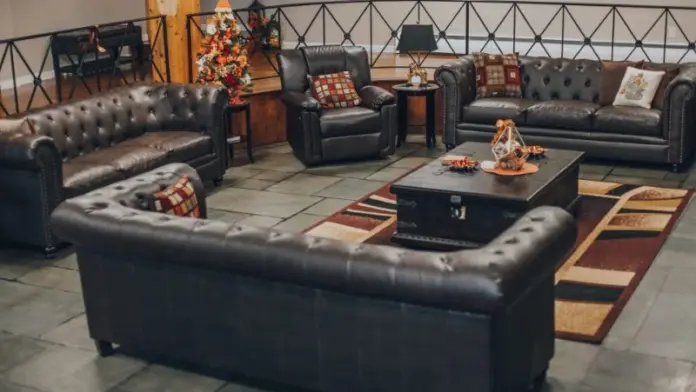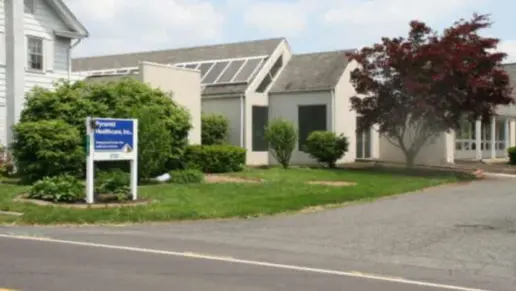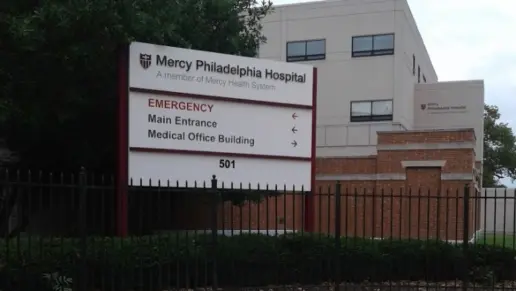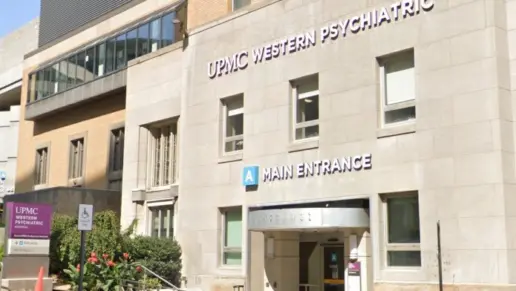About Serenity Mountain Recovery Center
Located on a 21-acre mountain overlook in Waymart, Pennsylvania, Serenity Mountain Recovery Center offers treatment for substance use disorder and dual diagnosis and co-occurring disorders. They’re CARF accredited, and they treat women ages 18 and older.
They accept insurance from many major carriers and will work with your insurance even if it isn’t in network.
There are three programs you can choose from. They offer a partial hospitalization program (PHP), an intensive outpatient program (IOP), and a regular outpatient program. The PHP is five days a week for five hours per day, while the IOP is 3-5 days per week for 3-5 hours per day. The regular outpatient program is 1-3 days per week for 1-3 hours per day.
All the programs address women’s issues such as partner relationships, general relationships, sexuality, and parenting. A common thread for women with substance use disorder includes growing up in households where sexual, physical, or substance abuse was prevalent. The programs help you recover from these difficult childhood experiences.
They put a special emphasis on sexual health which includes living a life true to yourself. You’ll work on improving your physical, emotional, and mental health for better intimate relationships. They also take pregnant women until their second trimester. Many women are already parents. If that’s the case for you, you’ll have access to parenting classes to strengthen the bond with your child or children.
You’ll have a customized treatment plan depending on the type and severity of your substance use and mental illness. Many people with substance use also have co-occurring disorders such as anxiety, depression, or bipolar disorder. One of the most important parts of treating your substance use is identifying any co-occurring disorders. It’s often the mental health issues that drive substance use, so getting any underlying conditions treated makes substance use treatment more effective.
You’ll engage in different treatment options such as cognitive behavioral therapy (CBT), dialectical behavioral therapy (DBT), trauma counseling, and group therapy. You’ll learn about and participate in 12 Step groups. There are also optional faith-based groups and holistic therapies such as trauma yoga therapy, music, and art therapy.
According to former clients, the surroundings were quite stunning. The staff was noted as being caring and attentive.
Rehab Score
Gallery






Location
Accepted Insurance
Other Forms of Payment
Private insurance refers to any kind of healthcare coverage that isn't from the state or federal government. This includes individual and family plans offered by an employer or purchased from the Insurance Marketplace. Every plan will have different requirements and out of pocket costs so be sure to get the full details before you start treatment.
Self-pay involves paying for treatment out of your own pocket. You can use savings or credit, get a personal loan, or receive help from family and friends to fund your treatment. If you don't have insurance or your insurance plan doesn't cover a specific program, self-pay can help ensure you still get the care you need.
Medicaid is a state based program that helps lower-income individuals and families pay for healthcare. Medicaid covers addiction treatment so those enrolled can use their coverage to pay for rehab. When a program accepts Medicaid the client often pays very little or nothing out of their own pocket.
Addiction Treatments
Levels of Care
Treatments
Substance rehabs focus on helping individuals recover from substance abuse, including alcohol and drug addiction (both illegal and prescription drugs). They often include the opportunity to engage in both individual as well as group therapy.
Programs



Clinical Services
Cognitive behavioral therapy (CBT) in Pennsylvania can be helpful to individuals who are experiencing substance use disorder and various mental health conditions. It helps you identify damaging thought and behavior patterns and replace them with healthy ones.
Group therapy is any therapeutic work that happens in a group (not one-on-one). There are a number of different group therapy modalities, including support groups, experiential therapy, psycho-education, and more. Group therapy involves treatment as well as processing interaction between group members.
In individual therapy, a patient meets one-on-one with a trained psychologist or counselor. Therapy is a pivotal part of effective substance abuse treatment, as it often covers root causes of addiction, including challenges faced by the patient in their social, family, and work/school life.
Motivational interviewing in Pennsylvania gives you the opportunity to share your perspective and explore your ideas and motivation for change. Your therapist will walk you through the four steps of engaging, focusing, evoking, and planning to empower you to make any desired changes in your life.
Trauma therapy addresses traumatic incidents from a client's past that are likely affecting their present-day experience. Trauma is often one of the primary triggers and potential causes of addiction, and can stem from child sexual abuse, domestic violence, having a parent with a mental illness, losing one or both parents at a young age, teenage or adult sexual assault, or any number of other factors. The purpose of trauma therapy is to allow a patient to process trauma and move through and past it, with the help of trained and compassionate mental health professionals.
Couples therapy in Pennsylvania is typically short term treatment that focuses on building skills that lead to positive long term relationship changes. Sessions with the therapist may occur both jointly and individually.
Family therapy teaches individual family members in Pennsylvania the benefits of collectively combating addiction. Therapists help individual members establish healthy boundaries between themselves and their loved one who is struggling with addiction. This helps improve emotional support systems and creates a bond so families work together to sustain long term recovery.
Accreditations

LegitScript has reviewed Serenity Mountain Recovery Center as part of their certification program, and has determined that it meets the LegitScript standards for legality, safety and transparency.
LegitScript verified in November 2020

The Joint Commission, formerly known as JCAHO, is a nonprofit organization that accredits rehab organizations and programs. Founded in 1951, the Joint Commision's mission is to improve the quality of patient care and demonstrating the quality of patient care.
Joint Commission Accreditation: Yes
Contact Information
94 Adams Dr
Waymart, PA 18472









